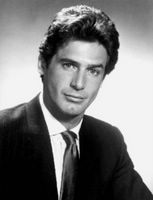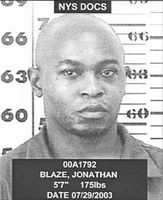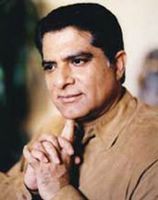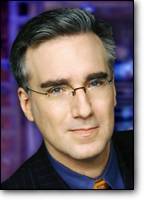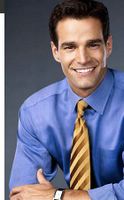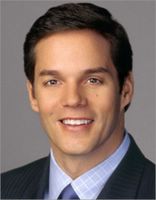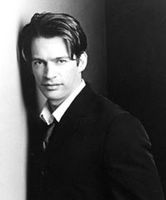The Wall Street Journal
March 15, 2006
THE SMALL SCREEN
By JOE FLINT
DOW JONES REPRINTS
Tabloid-Style 'Larry King Live'
Is Losing Viewers and Credibility
March 15, 2006
It has become increasingly clear that Larry King's best days at CNN are behind him.
Never known as a particularly deep interviewer, Mr. King at one time managed to land important politicians and newsmakers, giving his program some journalistic value. Today, though, the veteran host seems more interested in celebrities and crime, diminishing not only his own reputation and influence, but that of CNN as well.
And it shows in the ratings. The veteran host has seen his audience decline substantially in recent years as viewers gravitate toward more aggressive programs such as Fox News's "Hannity & Colmes." Fewer than one million people tune in each weeknight, on average, for "Larry King Live," according to Nielsen Media Research, down from 1.5 million three years ago. That's far behind "Hannity & Colmes," which leads cable news networks in the 9-10 p.m. hour with almost 1.6 million viewers.
And the viewers who remain part of the 72-year-old Mr. King's audience tend to be older (65, on average), and less wealthy (with a median income of $40,000), numbers that hold little appeal for advertisers intent on reaching younger, more-affluent consumers.
Mr. King's celebrity-oriented show also feels awkward sandwiched between Paula Zahn and Anderson Cooper's newsier programs. While neither of those shows is likely to invoke memories of Edward R. Murrow's "See It Now," both look like PBS documentaries next to Mr. King's hourlong softball fest. "His topics don't fit the rest of CNN," says Andrew Tyndall, an independent television news analyst. "He breaks up the entire flow of the evening."
The ratings problems would be less of an issue if Mr. King were delivering a hard-hitting show, but that isn't often the case. The show has dwelled almost exclusively on the famous and the infamous since Mr. King made Los Angeles his primary residence several years ago. It also is often the first stop for celebrities and politicians in hot water because they know they are unlikely to face tough questions.
But the real trouble is that Mr. King often appears disengaged. He seems to do little research before sitting down with guests. In interviews, he rarely strays from prepared questions, which means he misses the chance to probe his guests on the rare occasions when they say something revealing.
Mr. King's kid-gloves approach was on display during his recent interview with James Frey, author of the now-discredited memoir, "A Million Little Pieces." Mr. King's studio was the first place where Mr. Frey came to answer charges raised by Web site The Smoking Gun that the author had fabricated key parts of his book. Although there were many specific incidents from the book that had been challenged or disputed, Mr. King kept his questions so general that Mr. Frey was able to skirt the issue of whether his writing was truthful. (Oprah Winfrey phoned in during the show to offer a defense of Mr. Frey, a move she later regretted.)
Mr. King was equally ill-adept during an interview last week with Jermaine Jackson, the eldest brother of embattled pop star Michael Jackson. Jermaine Jackson appeared on Mr. King's show to refute a New York Daily News story that claimed he had been working on an unflattering, tell-all book about his brother. Mr. Jackson told Mr. King that after the story appeared, "Michael's people called me, and they asked me, was this true?" But instead of directly asking Jermaine Jackson why he didn't speak to his brother, Mr. King focused on tangential details. This was a fairly tabloid story, even by the standards of Mr. King's show, but as long as the host was devoting an hour to it, why not at least try to shed a light on what has to be one of the most bizarre families this side of "The House of Atreus?"
Even Mr. King's crime-theme shows -- a common fallback for news and talk shows looking for an easy way to fill time and attract viewers -- seem peripheral. Last week, he devoted part of his hourlong show to the murder of New York graduate student Imette St. Guillen, whose grisly killing has garnered widespread attention. One of his guests was forensic expert Henry Lee, who, since he isn't directly involved in this case, had nothing substantial to say. This was equally true of the other guests appearing on the show.
Lighter interviews aren't any easier to take. Mr. King often fails to detect nuance and irony in his guests' responses. When "Daily Show" host Jon Stewart appeared on the show days before the Academy Awards, Mr. King seemed outmatched by the comedian's sardonic humor. At one point, the host expressed genuine surprise that Mr. Stewart doesn't necessarily relish making fun of the failings of government. "Are you insane," was Mr. Stewart's response when Mr. King asked him if he wanted Medicare to fail. (Read a transcript1 of the interview.)
"One way you measure the quality of an interviewer is, can they listen to answers and form their next question based on what they hear," says Jay Rosen, a media critic who teaches at New York University's Department of Journalism.
Some people say that Mr. King, a longtime radio talk-show host before joining CNN, shouldn't be held to the same standards as other journalists. The trouble is, Mr. King, who occupies a prime-time slot on a channel that bills itself as all-news, doesn't even meet the standards of many daytime talk shows.
With three years left on his contract, Mr. King probably isn't likely to go away anytime soon. Yes, his interviewing skills, which were never going to be confused with those of Ted Koppel, have slipped with his ratings. And CNN executives surely are aware of the show's problems. But they also know that Mr. King still draws a bigger audience than any other show on the cable network, and that ratings in the time slot might be under pressure no matter who was in the host's chair.
CNN appears to be of two minds on what direction it wants to take, torn between branding itself as the network of hard news and analysis, and one where tabloid programming like "Larry King Live," and, on sister channel Headline News, Nancy Grace, garner top billing. (Ms. Grace is viewed by some as a potential successor to Mr. King.) If CNN pulls the plug on "Larry King Live," the network's ratings will likely fall. But the short-term loss could be worth the longer-term boost to CNN's credibility. If the network waits three years, it might be too late.






